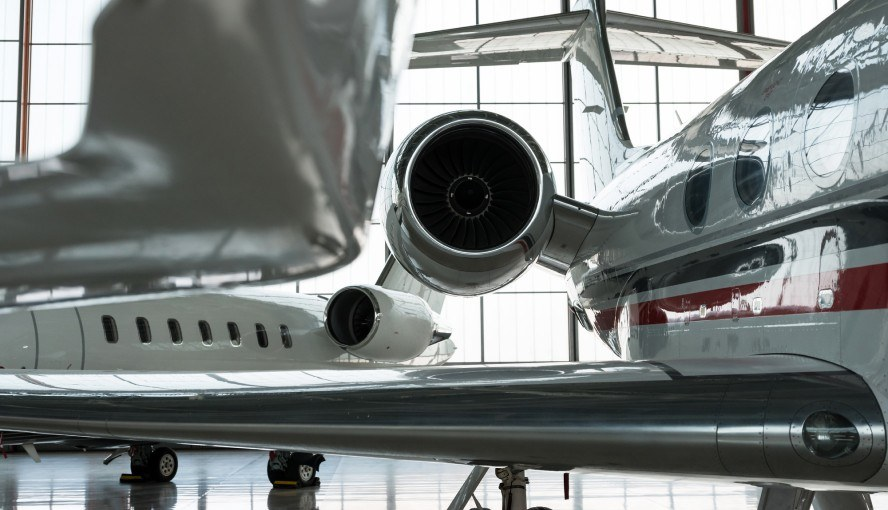Process of Buying a Private Jet: Step-by-Step Guide
Owning a private jet signifies a high level of luxury, convenience, and status. However, the process of buying a private jet is complex and requires meticulous planning and research. This step-by-step guide will help you navigate through each stage smoothly, ensuring that you make informed decisions and enjoy a seamless experience from initial research to post-purchase management.
Initial Research and Planning
Assessing Your Needs
The first step in buying a private jet is to assess your needs. Consider how often you will use the jet, the typical number of passengers, and your travel destinations. Evaluate whether you need a jet for
long-haul flights or shorter trips, as this will impact your choice of aircraft. Additionally, think about any specific features or amenities you require, such as a large cabin, advanced avionics, or high-speed performance.
Setting a Budget
Setting a realistic budget is crucial when purchasing a private jet. The initial cost of the jet is only part of the equation. You must also consider ongoing expenses such as maintenance, fuel, insurance, hangar fees, and crew salaries. Financing options, such as loans and leases, can help manage the costs. Ensure that your budget encompasses both the purchase price and the long-term operational expenses.
Selecting the Right Jet
New vs. Pre-Owned Jets
One of the first decisions you'll need to make is whether to buy a new or pre-owned jet. New jets come with the latest technology, warranties, and customization options, but they also have higher price tags and depreciation rates. Pre-owned jets are more affordable and may offer better value, but it's essential to thoroughly check their condition and maintenance history to avoid costly repairs.
Popular Jet Models and Their Features
Familiarize yourself with popular jet models and their features. Brands like Gulfstream, Bombardier, and Cessna offer a range of jets with varying performance specs, cabin sizes, and capabilities. Understanding the differences between models will help you choose the right jet that meets your specific needs and preferences.
Finding a Reputable Dealer or Broker
Researching Dealers
Finding a reputable dealer is critical to a successful jet purchase. Research dealers' reviews, industry reputation, and customer feedback to ensure you are working with a trustworthy seller. A reputable dealer will provide transparency, a wide selection of jets, and comprehensive support throughout the buying process.
Role of Aircraft Brokers
Aircraft brokers can be invaluable in the buying process. They offer expertise, market knowledge, and negotiation skills that can help you secure the best deal. Brokers typically charge a commission fee, but their services can save you time, effort, and money in the long run.
Inspection and Test Flights
Pre-Purchase Inspections
A thorough pre-purchase inspection is essential to ensure the jet is in good condition. This inspection should include mechanical checks, avionics systems evaluation, and a review of the jet’s maintenance history. Hiring an experienced aviation mechanic or inspection service can help identify any potential issues before finalizing the purchase.
Conducting Test Flights
Test flights are crucial to assess the jet's performance and comfort. During the test flight, evaluate the aircraft's handling, speed, and overall comfort. Pilot feedback is also valuable, as experienced pilots can provide insights into the jet's performance and any potential concerns.
Financing Your Purchase
Loan Options for Jet Buyers
There are various loan options available for financing a private jet purchase. Compare financing terms, interest rates, and loan providers to find the best option for your needs. Some financial institutions specialize in aviation loans and can offer tailored solutions for jet buyers.
Leasing vs. Buying
Consider whether leasing might be a more suitable option compared to buying. Leasing offers lower upfront costs and can be more flexible, but it may not provide the same level of ownership benefits. Evaluate the cost benefits, tax implications, and ownership flexibility of both options to determine which is best for you.
Completing the Transaction
Legal and Regulatory Considerations
Navigating the legal and regulatory aspects of buying a private jet is crucial. Ensure that the jet's registration, compliance with aviation regulations, and ownership transfer are handled correctly. Working with an aviation attorney can help you manage these complexities and avoid any legal pitfalls.
Finalizing the Purchase Agreement
The purchase agreement is a critical document that outlines the terms of the sale, payment schedule, and closing process. Carefully review the contract terms and negotiate any necessary adjustments. Ensure that all aspects of the agreement are clear and acceptable before finalizing the transaction.
Post-Purchase: Managing Your Jet
Setting Up Maintenance and Operations
Once you own the jet, setting up a maintenance schedule and managing operational costs is essential. Establish relationships with service providers and schedule regular maintenance to keep your jet in top condition. Consider joining a jet maintenance program to simplify this process and ensure consistent service quality.
Hiring Crew and Management Services
Hiring qualified crew and management services is vital for the safe and efficient operation of your jet. This includes pilot hiring, crew training, and potentially working with a management company to oversee daily operations. A professional crew and management team will ensure that your jet is operated safely and efficiently.

Conclusion
Buying a private jet is a significant investment that requires thorough research, careful planning, and professional guidance. By following this step-by-step guide, you can navigate the complexities of the process and make informed decisions. Whether you are assessing your needs, setting a budget, selecting the right jet, or managing your new aircraft, this guide provides the essential information to ensure a smooth buying experience.
Embrace the luxury and convenience of jet ownership with confidence, knowing you have taken the necessary steps to make a well-informed purchase. For expert assistance with private jet hire and sales, visit
GoJets to explore your options and receive professional guidance.
FAQs about Buying a Private Jet Process
Q: What are the main steps in buying a private jet?
Assessing your needs, setting a budget, selecting the right jet, finding a reputable dealer or broker, conducting inspections and test flights, financing the purchase, completing the transaction, and managing the jet post-purchase.
Q: How do I choose between a new and a pre-owned jet?
Consider factors such as cost, depreciation, warranty, and available features. New jets offer the latest technology but at a higher price, while pre-owned jets can provide better value if they are in good condition.
Q: What should I look for during a pre-purchase inspection?
Focus on mechanical checks, avionics systems, and the jet’s maintenance history. Hiring an experienced aviation mechanic for the inspection can help identify any potential issues.
Q: How do I finance the purchase of a private jet?
Explore loan options from financial institutions, compare financing terms and interest rates, and consider leasing as an alternative to buying.












